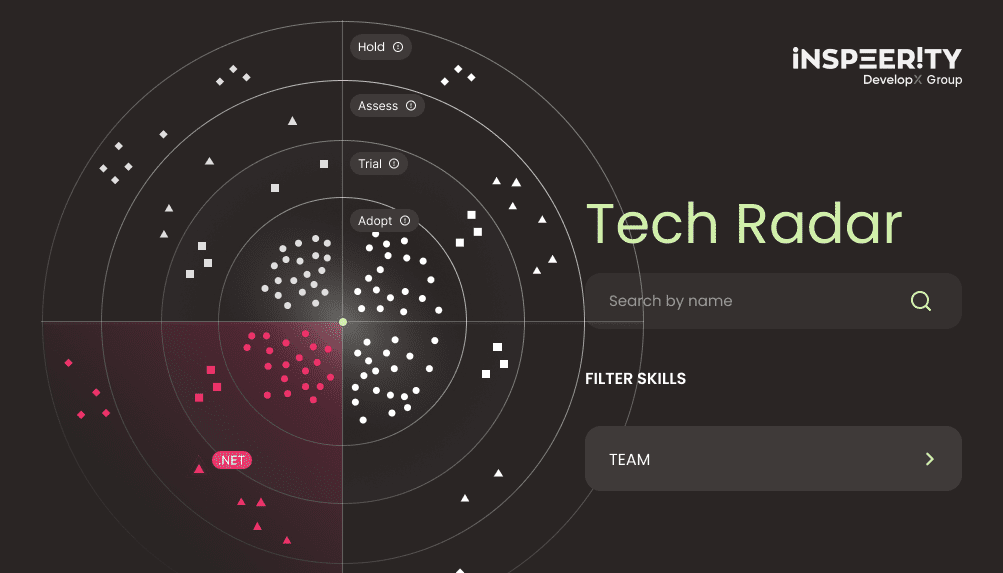The General Data Protection Regulation (GDPR) came into action in early 2018. Yet even after 5 years it still creates questions. Working with an external software partner on GDPR compliance can get pretty confusing. Especially with all the different pieces we need to juggle.
So where does this apply to the software process and how do companies implement the rules?
In this blog post, I will discuss how an external software development partner is GDPR compliant. And the steps you can take to check this.
Key Takeaways
Curious about the details? Download our Statement of Work (SOW) to review how we approach a project. The SOW document provides a clear roadmap of our planned activities, timelines, and responsibilities, ensuring transparency for all stakeholders.
What is GDPR?
GDPR aims to protect the privacy and personal data of EU citizens. This means companies have to obtain explicit consent from individuals before collecting their personal data and provide them access to their data upon request. Companies must also make sure that the data is secure and protected from unauthorized access.
In the context of software development, this regulation translates into a set of guidelines. Developers must follow these to ensure that any software they create is not just functional and user-friendly, but also a secure vault for users’ data.
GDPR in software development
Before I jump into how software companies are GDPR compliant, I wanted to touch on where this applies to the software development process. Throughout the software development lifecycle software partners need to take into account privacy policies.
This involves identifying and handling personal data carefully, ensuring secure storage, and implementing strict access controls. These measures are integrated from the planning phase through testing, deployment, and maintenance, ensuring ongoing compliance with privacy regulations.
And if you want to know more about security issues surrounding the software development process, read: Ensuring Security Throughout the Software Development Life Cycle
Data considerations during the software development lifecycle and their impact
During the software development lifecycle, GDPR considerations are important at each stage. They shape not just the software we build but also the experience you, as the user, have with it. Here’s how data protection looks like throughout the process.
- Planning: when we plan, GDPR requirements are front and center. We identify the personal data that is processed and make sure privacy is a big part of the project plan. For you, this means you can have confidence that your data is recognized and safeguarded right from the start.
- Design: in the design phase, we’re all about privacy by design. We fold it into the technical and functional requirements, making sure your data is collected only when absolutely necessary and kept under lock and key.
- Build: as we build, your personal data is coded into our system with security as a priority. We put up walls to keep out any unauthorized access. This means that data concerns are built into the code.
- Testing: testing time is like a security drill for us. We’re on the lookout for any cracks that might let unwanted guests in. Here we test for vulnerabilities in the system that could lead to unauthorized access to personal data.
- Rollout: when we roll out the new software, we’re not just launching a product, we’re ensuring your data’s safe passage. With strict access controls, we keep your information out of the wrong hands as it transitions to the new system.
- Maintenance: we don’t just set it and forget it. Maintenance means regular checks and updates, always with GDPR in mind. We delete your data when it’s no longer needed, and keep up the defenses to prevent data breaches. Your peace of mind is our priority, even as our software grows and changes.
Discover more about the software development process with: Software Development with Offshore Companies: A Guide to Collaboration
How can software development companies ensure GDPR compliance?
Although data concerns are considered throughout the software development lifecycle. There are additional areas where software development companies can comply with GDPR.
- Conduct a Data Audit: companies should conduct a data audit to identify all the personal data they collect, process, and store. This will help them understand the scope of their GDPR compliance obligations.
- Implement Privacy by Design: privacy by design is an approach to software development that prioritizes privacy and data protection from the outset. Here software partners should implement privacy by design principles in their software development processes.
- Obtain Explicit Consent: individuals must explicit consent before their personal data is collected. They should provide clear information about what data they are collecting, why they are collecting it, and its use.
- Ensure Data Security: companies must ensure that the personal data they collect is secure and protected from unauthorized access. They should implement appropriate technical and organizational measures to protect personal data.
- Provide Access to Personal Data: individuals have the right to access their personal data upon request. And software companies must provide individuals with access to their personal data and allow them to correct or delete it if necessary.
- Train Employees: employees should be trained on GDPR compliance obligations and best practices for protecting personal data.
How do you check if a software company is GDPR compliant?
If you are concerned about the GDPR compliance of a software company, here are some steps you can take to check:
- Check the Company’s Privacy Policy: the company’s privacy policy should clearly state how they collect, process, and store personal data. It should also provide information on how they comply with GDPR.
- Check for GDPR Compliance Software: there are several software tools available that can help companies ensure GDPR compliance. You can check if the company uses any such tools.
- Contact the Company: if you are still unsure about the company’s GDPR compliance, you can contact them and ask for more information.
By following these steps, you can get a better idea of whether a software company is GDPR compliant or not.
Conclusion
In conclusion, software development companies must ensure GDPR compliance to protect the privacy and personal data of EU citizens. By conducting a data audit, implementing privacy by design, obtaining explicit consent, ensuring data security, providing access to personal data, and training employees, companies can ensure GDPR compliance.
If you have any questions about GDPR and custom software development, you can book a chat today.




